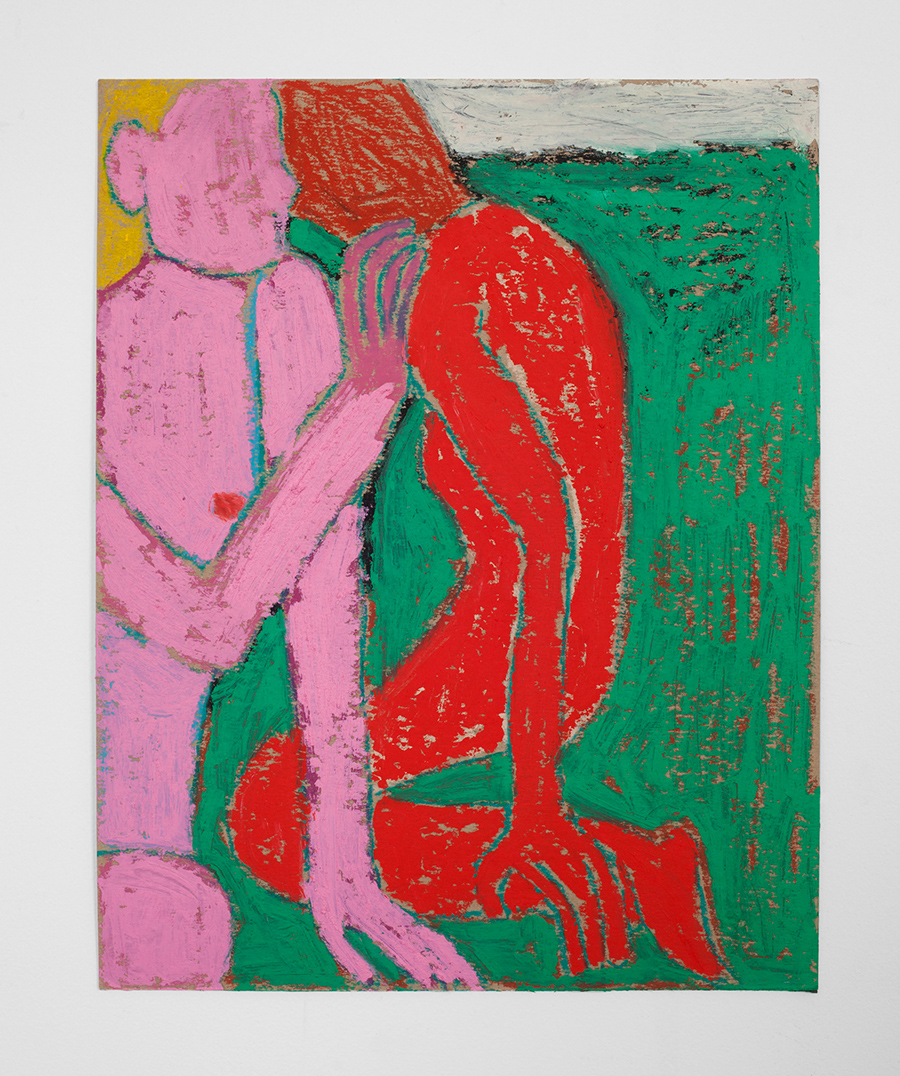Vol.112_Kimia Ferdowsi Kline
Kimia Ferdowsi Kline from New York, United States.
Editor_Jihyun Yi
Do you remember the moment you decided to be a painter?
I don't actually remember, but my parents say that when I was 8 years old I announced it. And then I remember in high school I had an art teacher I loved and after taking her class I decided it was really what I wanted to try and do.
What kind of impact do you hope that your work has? Aside from the message, is it enough that your art just be beautiful?
My wish is that the images I create help awaken people. I feel like as a society we are emotionally numb— I hope my art helps people reconnect with their own hearts.
Beauty is a little complicated given the present discourse surrounding it in the art world today. In my opinion, every painting doesn't have to do the same thing or address the same questions. Some paintings can be just about beauty, maybe others are about intimacy, and maybe others are about pain or even trauma. Beauty is so villainized and dismissed. We think if something is only beautiful then it doesn't have any other value, but I don't think this is true.
Do you draw everyday?
No, but I look at art every day. My drawings begin with looking so this is still a very important part of my process.
Do you have your own routine for work?
My routine changes if I'm away for a residency or if I have a big show coming up, but generally I wake up and bike to my studio and stay until the sun goes down. Some days I will spend all my time just staring at paintings in progress, trying to figure out the next step. Other days I'll paint the whole day and get a lot of good work done. But the creative process for me isn't linear, it's always filled with surprises.
Could you describe your creative process? Do you sketch first?
Sometimes a painting will begin with a drawing, but often I will just go straight to the painting. I never know how a painting will turn out--I'm not the type of artist that looks at an image and tries to copy it. I follow the work where it leads me. And often I'll step back from a painting and not know how I ended up with the image in front of me.
How has moving to New York changed the way you approach your art?
I really think about the wider community now in relation to my art and art in general. I'm interested in finding ways of educating the masses about art, I'm interested in bridging the gap between artists and people who might not know anything about art or even be interested to know about it. Moving to New York and working as a curator made me start thinking about my art practice as moving beyond the walls of my studio.
Do you spend time around other creatives?
Yes, all the time. The art community in New York is very supportive, and I'm always visiting or working with other artists.
How do you think about art academia?
I think it's an incredibly important space that contributes to generating knowledge and understanding around the practice, use, and societal implications of art.
Do you think critique is needed for art? What is the role of the art critic?
Critique can be beneficial in moderation. The role and influence of the art critic has changed over the years— but I think it's always essentially been one of contributing to discourse and correlating what's being made with relevant concepts.
What makes something art?
Art is the result of engaging with the creative process. In other words, I think true art is the process by which something is made, not always the final result.
What is good taste to you?
I think it's a very relative idea and is often used as a way to impose one culture's notions of beauty and class onto another.




